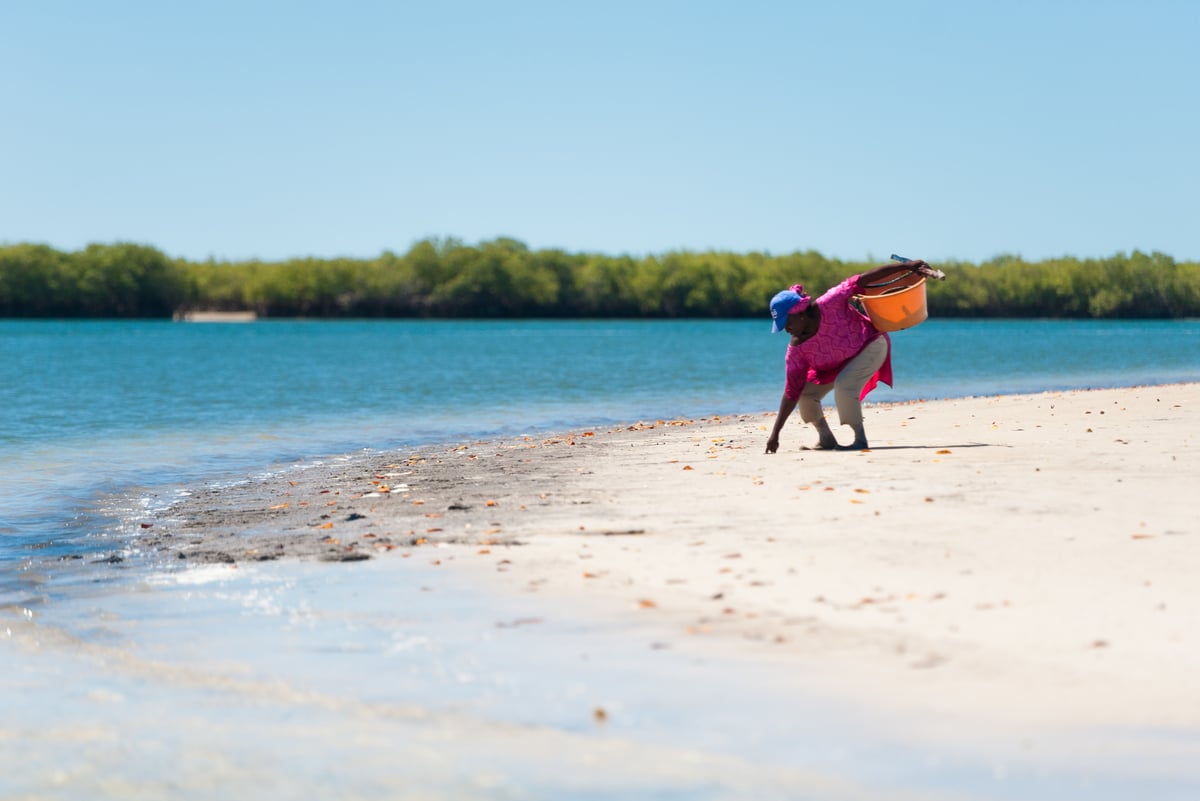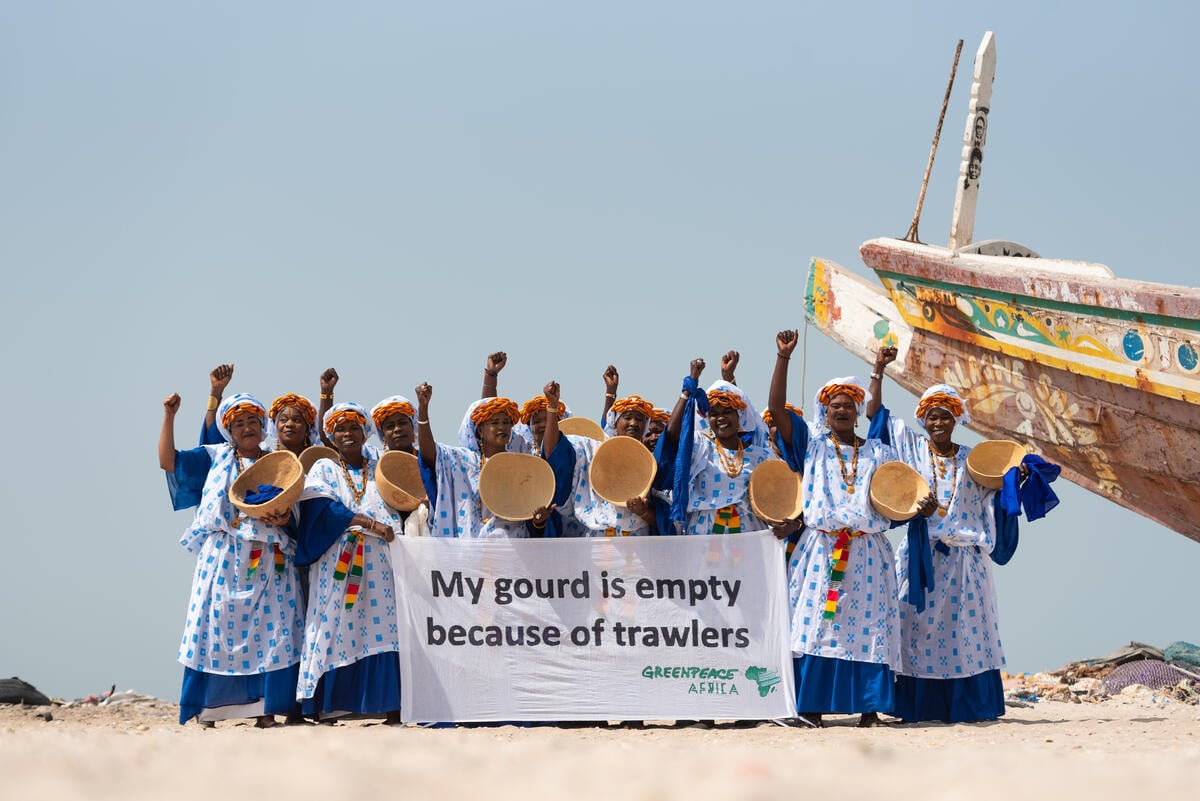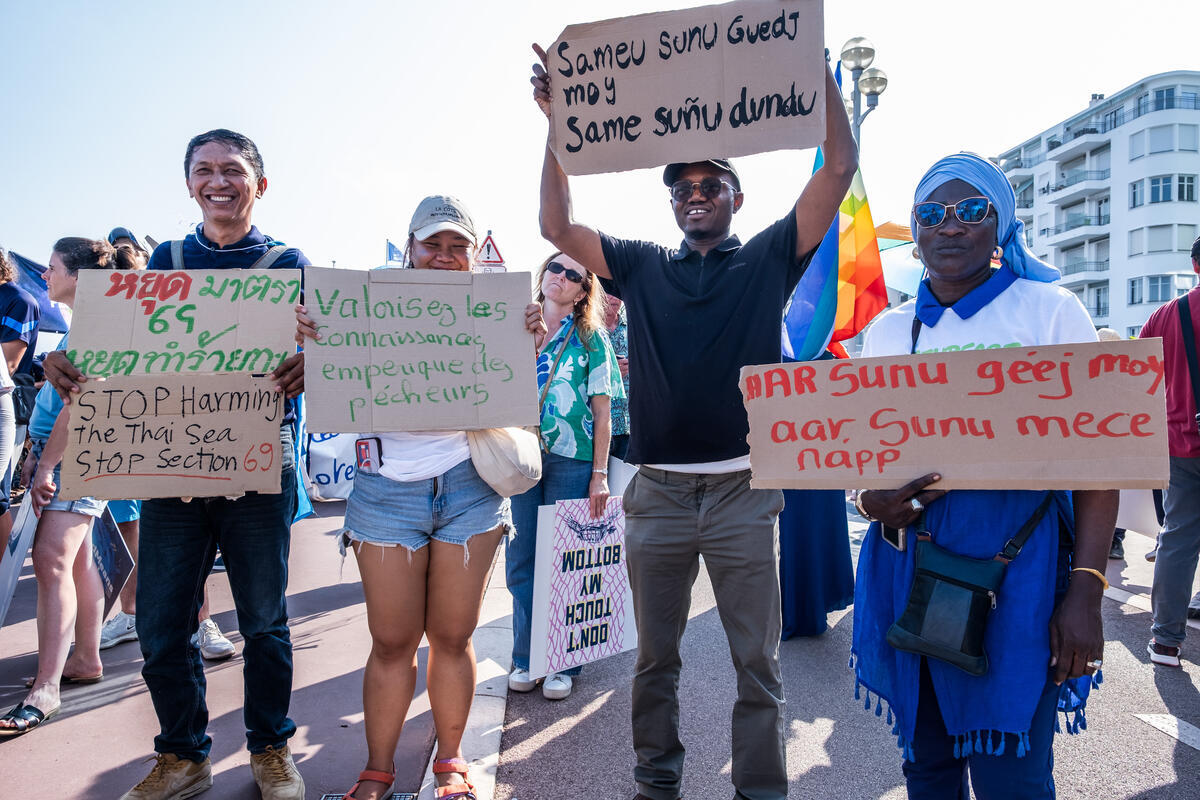While coastal and Indigenous communities have been sustainably managing the ocean, protecting biodiversity and safeguarding a healthy climate for all for centuries, destructive fishing and industrial exploitation is harming people's health and livelihood, while destroying nature and climate. We need to uphold community driven solutions to ensure a fair and sustainable future for the ocean and the people - and demand governments follow their lead.

The ocean is at the heart of coastal communities' livelihoods, feeding families around the world and weaving communities together through vibrant cultural traditions. Millions of small-scale fishers, Indigenous Peoples, and coastal people rely on healthy oceans for food, income, and cultural survival.
But oceans and people's health are threatened by unsustainable practices and industrial exploitation - from state-imposed industrial megaprojects and destructive fishing in Thailand, to intensive aquaculture in Chilean Patagonia, fishmeal and fish oil factories in West Africa, and bottom trawling in Sri Lanka.
Solutions are within voices making waves, and this is why we need to uphold community driven solutions to ensure a fair and sustainable future for the ocean and the people - and demand governments follow their lead.

From UNOC3 to COP17: a people powered movement is growing and you can be part of it
Government leaders gathered in June 2025 at the third UN Ocean Conference, UNOC3, in Nice, France to discuss the future of the oceans, and because we all depend on the oceans, Greenpeace was there along with community representatives, small-scale fishers and women processors from Thailand, Mauritania, Gambia and Senegal. This big global event was crucial for the future of oceans and people: we know that marine conservation can only be a success with coastal communities leading the wa(y)ve, so we made sure world leaders hear the voices of coastal people.

A people powered movement is growing… and this is just the beginning. We need to make sure ocean justice is at the centre of the conversation during the next global negotiations in 2026. COP17, the 17th Conference of the Parties under the Convention on Biological Diversity (CBD), will be a moment for global leaders to report on how they delivered on the commitments they made during the previous COP in Rome and Cali, including priority funding for Indigenous Peoples and coastal communities who are stewards for protecting and restoring biodiversity, and protecting us all from the biodiversity collapse and its climate impacts.
Even though COP17 may seem in the far future, we can have an impact now and make sure world leaders center coastal communities rights and knowledge. That's why we're already paying attention - to ensure the voices and priorities of coastal communities are not only heard but truly reflected in the roadmap, and that governments actually invest in community-led solutions. Real change doesn't begin at the negotiation table - it begins where the ocean meets the people.
You may wonder: How can I contribute to these big global events? How can my voice make waves and contribute to ensuring ocean justice is at the heart of crucial conversations?
Here are 5 easy actions you can take today in order to support coastal people's rights and ocean conservation.
ACTION 1: Share testimonials of coastal people to show your support and demand global leaders to recognise coastal people leadership in safeguarding oceans for us all
At UNOC3 in Nice, two coastal communities representatives from Senegal and Thailand, Diaba Diop and Piya Thedyam sent a message to global leaders, and their hopes for future generations. We need to uphold community driven solutions to ensure a fair and sustainable future for the ocean and the people - and demand governments follow their lead.
Watch and share Diaba and Piya's video testimonials in your Instagram stories to demand governments that policies protect the rights of small-scale fishers, Indigenous Peoples, local coastal communities, as well as women and youth - those most dependent on, and essential to, ocean stewardship. Together, in the lead up to COP17, we can make sure world leaders comply with their commitments to protect and restore biodiversity by upholding coastal communities rights and leadership in sustainable ocean management.
Don't forget to use the hashtags #COP17 and #OceanJustice and tag @greenpeace
ACTION 2: Post on Threads and Bluesky to call on world leaders to ensure community-led marine protection
Post on Threads and Bluesky to tell world leaders that small-scale fishers, Indigenous Peoples, and local coastal communities must be recognised as rights-holders and frontline stewards of the ocean.
Click to post on Bluesky here and Threads here!
ACTION 3 : Share this post on Facebook to support people and oceans' health
The ocean is also a vital climate regulator and key to help mitigate climate change and its impacts. Coastal communities, small-scale fishers and Indigenous Peoples who have been sustainably managing the oceans for centuries are not only protecting their livelihoods, but everyone's right to live in a healthy environment.
Join the Voices Making Waves by demanding governments to halt industrial exploitation of the oceans, destructives practices and uphold coastal people's rights, agency and power by securing co-equal access to co-manage and co-design their own future.
ACTION 4: Share this blog along with these images in your story to show world leaders that solutions lies within voices making waves
Community driven solutions like community-led marine protected areas and small-scale fisheries are already making waves around the world. Grounded in sustainable practices, they are supporting economies, human rights and healthy oceans and biodiversity.

 (@greenpeace)
(@greenpeace)




